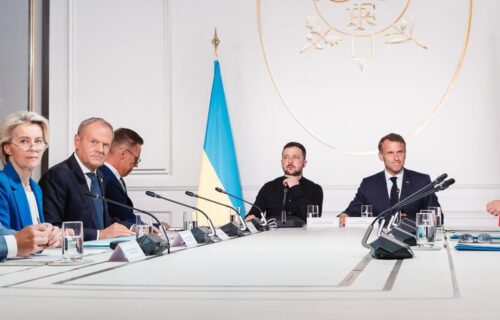Prime Minister Donald Tusk underlined the importance of unity between Europe and the United States in supporting Ukraine during a meeting of the “Coalition of the Willing” in Paris on September 4. The gathering brought together more than 30 countries backing Kyiv, with participants including European Commission President Ursula von der Leyen, Ukrainian President Volodymyr Zelensky, French President Emmanuel Macron, Dutch Prime Minister Dick Schoof, and Finnish Prime Minister Alexander Stubb.
Speaking after the talks, Tusk said Europe must act jointly with the United States to maintain pressure on Russia. He stressed that Poland will continue to serve as a key logistics hub for aid to Ukraine but will not send troops. “We have repeatedly emphasized that we do not expect the sending of soldiers, even after the end of the war. In Poland, there is the largest hub for organizing aid for Ukraine. This is a sufficient and exceptional task,” Tusk said.
The meeting also included a videoconference with U.S. President Donald Trump. According to Tusk, discussions focused on ways to push Russia toward negotiations. “Everyone is disappointed by the lack of results, despite the efforts of the European countries and the President of the United States,” he said, adding that Moscow appeared to be stalling.
Participants also voiced concern over China’s recent military parade attended by the leaders of Russia, North Korea, and Belarus. Tusk described it as “a demonstration that bodes badly for future international relations,” underscoring the need for Western cohesion.
In bilateral talks with Macron, Tusk said Poland and France agreed to oppose the EU’s trade deal with Mercosur countries unless stronger safeguards are put in place. “If it turns out that there is too much cheap beef, Europe will have defence mechanisms in stock, such as tariffs or suspending imports,” Tusk said. The two leaders also discussed climate policy, with Poland insisting that decisions on CO2 reduction targets should be taken by the European Council, allowing member states greater leverage in negotiations.
